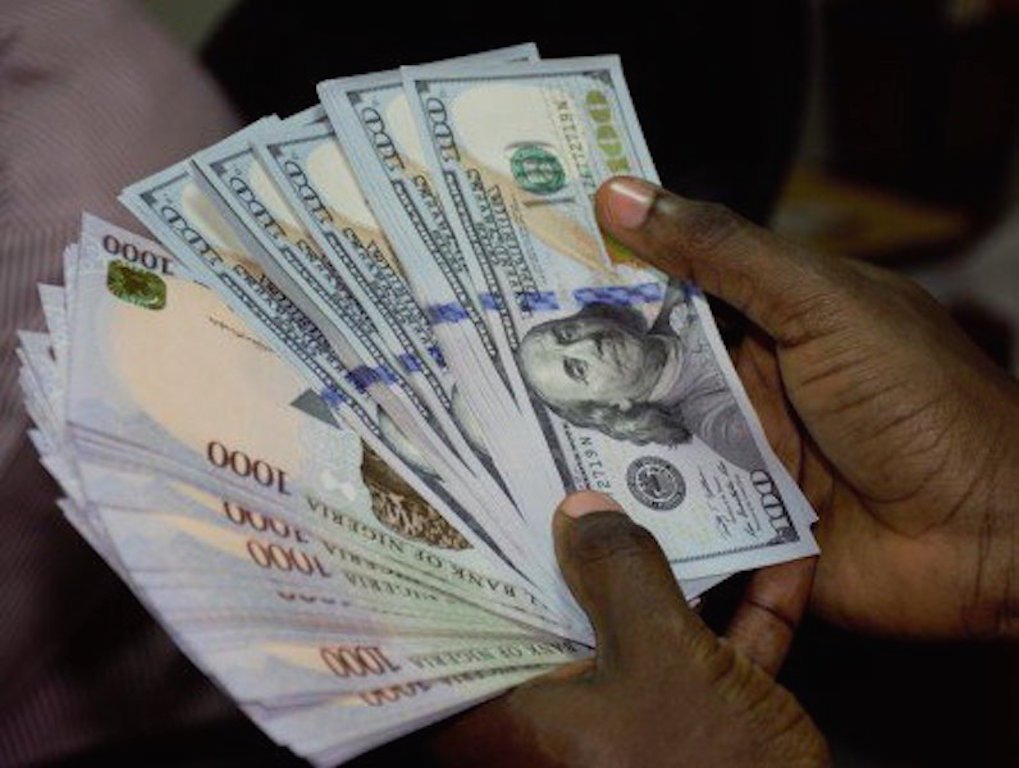
Way ahead of questions around the sustainability of current supply levels to the market. The more important question should be: “In the light of our experience with the foreign exchange market over the last two years, is this the most efficient use of scarce foreign exchange?”.
Mid-last week, the naira rallied very strongly against the dollar — recovering close to 10 percent of its value. As the week wound to a close, word on the street was that the naira is on a roll. The market for foreign exchange was in a funk: leading most commentators to the conclusion that speculators, whose fingers were singed last week would have no choice this week but to offload their dollar hoards if they are not to burn out completely. So, the talking-heads expect the naira to gain further on the dollar this week.
What has changed? Put differently, what happened last week to reverse the naira’s seemingly precipitous slide to US$1:N700 by year end?
Our multiple exchange rate structure remains. By one account, we have about nine markets (and hence, prices) for foreign exchange currently up and running: the spot market, the market for invisible transactions, export proceeds, bureaux de change, forwards, cash transfers, non-deliverable forwards, and futures. Additionally, there are those who point out that much of last week’s movement occurred at the retail end of the unofficial market. Apparently, price movement in the other “markets” were not as volatile.
In part, however, this volatility was to be expected. For last week, the central bank (CBN) announced a slew of changes to the way the “official” markets work that were always going to bear on how resources are allocated there. In all the excitement accompanying the naira’s apparent reversal of fortunes, it is easy to overlook the fact that the CBN technically devalued the official exchange rate as part of its new reform package. By agreeing to settle requests for medical bills, school fees, and personal travel allowances at 20 percent above the rate at which the interbank foreign exchange market clears its transactions, the CBN had moved official rates closer to the markets. It also doubtless compounded the worry over the usefulness of multiple exchange rates.
This though was not the only change to the foreign exchange market’s operating environment. A few of the more important changes have been afoot for far longer. None more important than the considerable improvement in the terms of trade for commodity-exporting emerging market and developing economies. Most commodity prices, especially minerals and ores have been trending up since the beginning of this year as global aggregate demand recovers. Indeed, so good has the current upturn been that commodity traders, BHP Billiton, Anglo American, and Glencore, all reported healthy profits for their 2016 operations following record losses the previous year. In addition, the agreement, late last year, between the oil producers’ cartel and a few non-members to stitch up production in order to shore up prices also appears to have held up.
When, therefore, you look beneath the kerfuffle over the naira’s sterling performance, last week, nothing fundamental has changed. A crude oil export-dependent economy, selling more oil, and at higher prices, feels rich enough to once again fritter the gains from a non-renewable asset on madcap schemes.
Add to this, the ongoing re-pacification of militants in the oil-rich Niger Delta region, and the immediate impact of these latter development is a boost in export earnings. By one account, our exports have been rising in value, the trade deficit is down, and the balance on the current account is nearing positive territory once again. There is no question but that the recent depreciation of the naira’s exchange rate had much to do with this improvement in the numbers on our external books — simply by disciplining consumption, a more expensive dollar was always going to have a negative impact on imports and a positive, if marginal, one on non-oil exports.
So, with (oil) revenues back up, what has happened? Payouts to the three tiers of government from the Federation Account Allocation Committee (FAAC) has moved up in the last two months — according to the federal finance ministry, increases in receipts from petroleum profit tax has been the main driver of this. And, just as crucially, we have seen the balance on the CBN’s foreign reserve account go up.
When, therefore, you look beneath the kerfuffle over the naira’s sterling performance, last week, nothing fundamental has changed. A crude oil export-dependent economy, selling more oil, and at higher prices, feels rich enough to once again fritter the gains from a non-renewable asset on madcap schemes. The naira’s exchange rate was always going to improve once supply got better: and the CBN has committed to improving supply.
Way ahead of questions around the sustainability of current supply levels to the market. The more important question should be: “In the light of our experience with the foreign exchange market over the last two years, is this the most efficient use of scarce foreign exchange?”.
I don’t think so.
Ifeanyi Uddin, journalist manqué and retired civil servant, can be reached @IfeanyiUddin.
END

How long can CBN sustain the supply? Right now, they are pouring more water into a leaking bucket.
I have said this many times, the CBN and the FG need to re-visit the constitution permitting the ownership and existence of domiciliary accounts. These accounts are serving as storage for fired which should be in circulation. Once Dom accounts have been closed, forex is only issued to those leaving the country and banks enable customers to use their debit cards abroad and for foreign transactions, you will see a further crash in the exchange rates due to a reduction in the demand of the foreign currencies.
It isn’t rocket science!